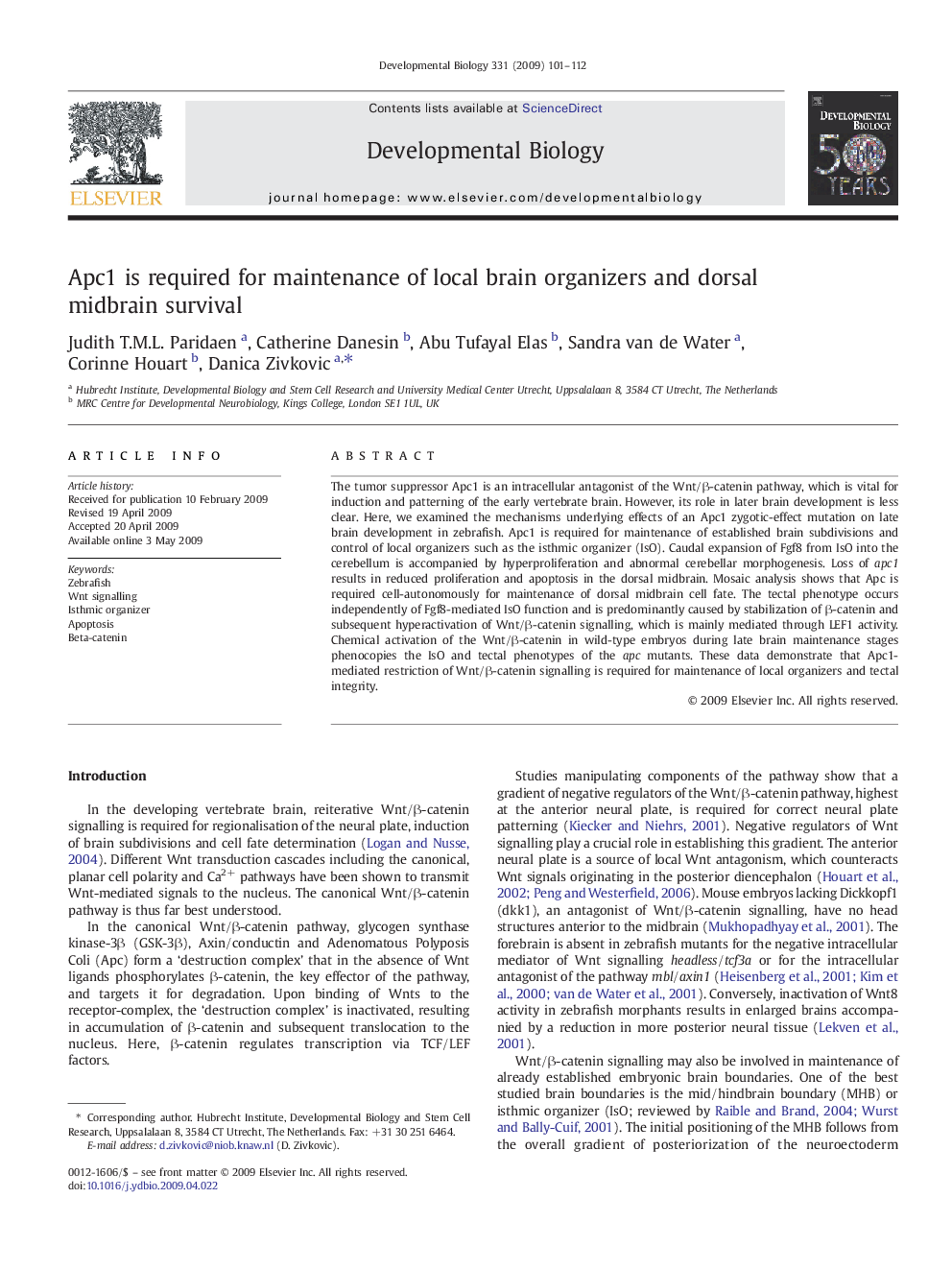| Article ID | Journal | Published Year | Pages | File Type |
|---|---|---|---|---|
| 2174156 | Developmental Biology | 2009 | 12 Pages |
The tumor suppressor Apc1 is an intracellular antagonist of the Wnt/β-catenin pathway, which is vital for induction and patterning of the early vertebrate brain. However, its role in later brain development is less clear. Here, we examined the mechanisms underlying effects of an Apc1 zygotic-effect mutation on late brain development in zebrafish. Apc1 is required for maintenance of established brain subdivisions and control of local organizers such as the isthmic organizer (IsO). Caudal expansion of Fgf8 from IsO into the cerebellum is accompanied by hyperproliferation and abnormal cerebellar morphogenesis. Loss of apc1 results in reduced proliferation and apoptosis in the dorsal midbrain. Mosaic analysis shows that Apc is required cell-autonomously for maintenance of dorsal midbrain cell fate. The tectal phenotype occurs independently of Fgf8-mediated IsO function and is predominantly caused by stabilization of β-catenin and subsequent hyperactivation of Wnt/β-catenin signalling, which is mainly mediated through LEF1 activity. Chemical activation of the Wnt/β-catenin in wild-type embryos during late brain maintenance stages phenocopies the IsO and tectal phenotypes of the apc mutants. These data demonstrate that Apc1-mediated restriction of Wnt/β-catenin signalling is required for maintenance of local organizers and tectal integrity.
